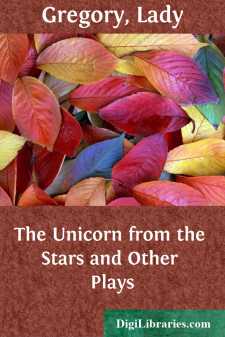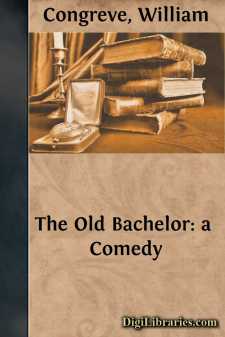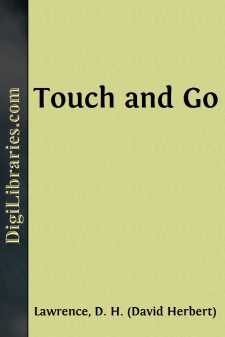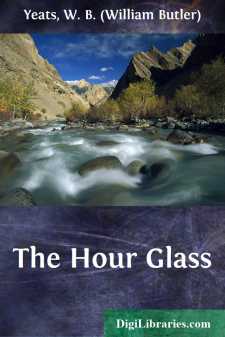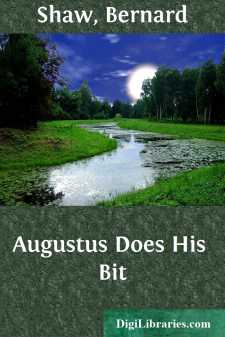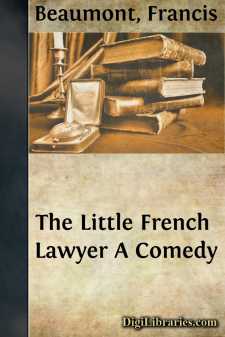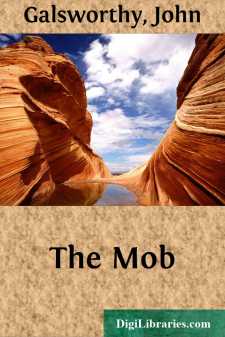Drama
- American 43
- Ancient, Classical & Medieval 45
- Asian 7
- Caribbean & Latin American 2
- Continental European 50
- English, Irish, Scottish, Welsh
- General 105
- Middle Eastern 1
- Religious & Liturgical 1
- Shakespeare 1
English, Irish, Scottish, Welsh Books
Sort by:
by:
Ben Jonson
INTRODUCTION THE greatest of English dramatists except Shakespeare, the first literary dictator and poet-laureate, a writer of verse, prose, satire, and criticism who most potently of all the men of his time affected the subsequent course of English letters: such was Ben Jonson, and as such his strong personality assumes an interest to us almost unparalleled, at least in his age. Ben Jonson came of the...
more...
by:
Bernard Shaw
You once asked me why I did not write a Don Juan play. The levity with which you assumed this frightful responsibility has probably by this time enabled you to forget it; but the day of reckoning has arrived: here is your play! I say your play, because qui facit per alium facit per se. Its profits, like its labor, belong to me: its morals, its manners, its philosophy, its influence on the young, are...
more...
PREFACE. The main rules which we proposed to ourselves in undertaking this Edition are as follows: 1. To base the text on a thorough collation of the four Folios and of all the Quarto editions of the separate plays, and of subsequent editions and commentaries. 2. To give all the results of this collation in notes at the foot of the page, and to add to these conjectural emendations collected and...
more...
by:
Lady Gregory
PREFACE About seven years ago I began to dictate the first of these Plays to Lady Gregory. My eyesight had become so bad that I feared I could henceforth write nothing with my own hands but verses, which, as Theophile Gautier has said, can be written with a burnt match. Our Irish Dramatic movement was just passing out of the hands of English Actors, hired because we knew of no Irish ones, and our...
more...
by:
William Congreve
TO THE RIGHT HONOURABLE CHARLES, LORD CLIFFORD OF LANESBOROUGH, etc. My Lord,—It is with a great deal of pleasure that I lay hold on this first occasion which the accidents of my life have given me of writing to your lordship: for since at the same time I write to all the world, it will be a means of publishing (what I would have everybody know) the respect and duty which I owe and pay to you. I...
more...
PREFACE A nice phrase: "A People's Theatre." But what about it? There's no such thing in existence as a People's Theatre: or even on the way to existence, as far as we can tell. The name is chosen, the baby isn't even begotten: nay, the would-be parents aren't married, nor yet courting. A People's Theatre. Note the indefinite article. It isn't The...
more...
SCENE: A large room with a door at the back and another at the side opening to an inner room. A desk and a chair in the middle. An hour-glass on a bracket near the door. A creepy stool near it. Some benches. The WISE MAN sitting at his desk. WISE MAN [turning over the pages of a book]. Where is that passage I am to explain to my pupils to-day? Here it is, and the book says that it was written by a...
more...
by:
Bernard Shaw
AUGUSTUS DOES HIS BIT The Mayor's parlor in the Town Hall of Little Pifflington. Lord Augustus Highcastle, a distinguished member of the governing class, in the uniform of a colonel, and very well preserved at forty-five, is comfortably seated at a writing-table with his heels on it, reading The Morning Post. The door faces him, a little to his left, at the other side of the room. The window is...
more...
by:
Francis Beaumont
Actus Primus. Scena Prima. Enter Dinant, a[n]d Cleremont. Din. Disswade me not. Clere. It will breed a brawl. Din. I care not, I wear a Sword. Cler. And wear discretion with it,Or cast it off, let that direct your arm,'Tis madness else, not valour, and more baseThan to receive a wrong. Din. Why would you have meSit down with a disgrace, and thank the doer?We are not Stoicks, and that passive...
more...
by:
John Galsworthy
ACT I It is half-past nine of a July evening. In a dining-roomlighted by sconces, and apparelled in wall-paper, carpet, andcurtains of deep vivid blue, the large French windows betweentwo columns are open on to a wide terrace, beyond which are seentrees in darkness, and distant shapes of lighted houses. On oneside is a bay window, over which curtains are partly drawn.Opposite to this window is a door...
more...


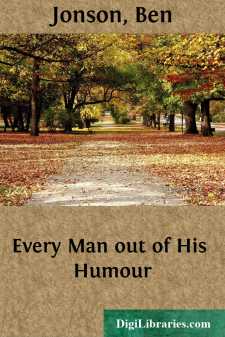
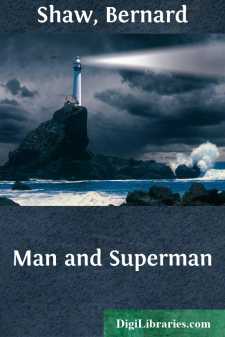
![The Works of William Shakespeare [Cambridge Edition] [9 vols.]...](https://digilibraries-com.s3.eu-central-1.amazonaws.com/covers/a2e5c638-77fb-4dc6-8fd2-e159b114f0df.jpg)
